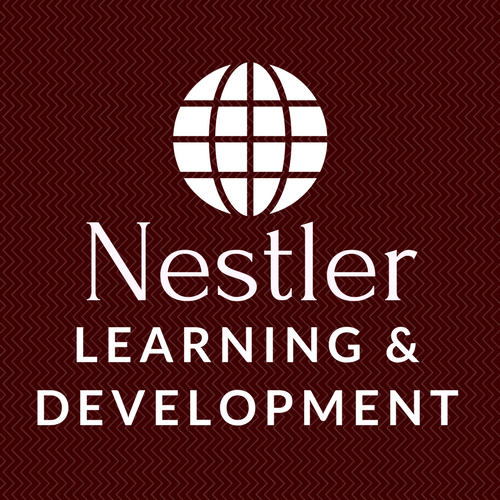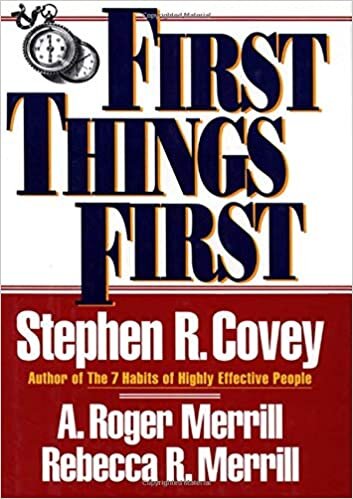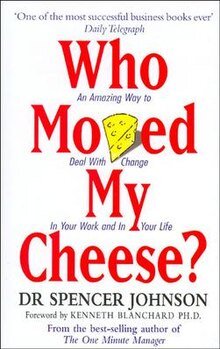My car (like yours) has a large windshield for seeing what is ahead and a tiny rearview mirror for seeing what is behind us. I think that is a good design because while driving I can make a lot more use of information about what is up ahead and there isn't much I can do about what is behind me.
The same story applies to navigating through life and through our work. Sure, I want to know if an 18-wheel giant truck is barreling down on me, but if I get distracted by the past and don't pay enough attention to the future, I will probably be in for a crash.
Yet the future is a source of much anxiety for many of us. I recall doing a little experiment in a seminar I was conducting about the future. I asked the participants to brainstorm words they associate with the future. What happened was quite extraordinary. The first five or so words were clichés: "new, improved, better, fresh, opportunity". Then something happened that I hadn't anticipated. The words turned from positive to negative: "unknown, risk, loss, insecurity, downsizing, more work, chaos". I finally stopped the brainstorming when someone said "death"! I never found out what motivated that contribution but I have always wondered
The lesson for me is that just below the surface we see change as a minefield where danger lurks and we are at risk - at least when it comes to change imposed by others on us. But hasn't life always required us to deal with change? After all, the Greek philosopher Heraclitus in the century before Christ gave us the doctrine of change: The Only Constant is Change.
But compared to today, change in Heraclitus' time occurred at a much slower pace. Science was in its infancy, communication was primitive compared to today and the world Heraclitus knew was much smaller.
In fact, we live in exponential times when changes occur not like 1+2=2 and 2*2=4 but like 1010= 1,0000,000,000. A few small examples: Thomas Edison inspired by the work of a Frenchman named Édouard-Léon Scott de Martinville invented the phonograph in 1877. The recording medium was a cylinder. Later it because a vinyl record which rotated at 78 revolutions per minute, later a 33 and 45 RPM version in stereophonic sound. I owned some of each of these types of platters when I was young. We spoke about singles and albums. Then I moved to the 8-track tape, the cassette, the CD and now my music is all on my computer and my Smartphone. And I have every reason to believe that in less than 10 years the MP3 audio format will be replaced by something which uses less storage and better.
Another example: When I first attended university I took a computer course where we learned to punch rectangular cards that looked like oversized index cards that could be read by the computer - provided we also set up a patch panel which looked like an old telephone switchboard. The computer required a large, specially climate-controlled room if it was to successfully do its "thinking". People were literally asked to top-toe around it (after removing their shoes so as not to bring dust into the room). It was the only room in the building that was air-conditioned, meaning we were more concerned about the "comfort" of the mainframe computer than of the people.
Today I am surrounded by computers which I stick in my briefcase and use in all different environments. Without them my life would be very different. Think about the fears we had over the Y2K phenomenon.
We have all heard someone sarcastically ask, “What have the geniuses in senior management come up with this time?” Then we usually hear something like “If the old way was good enough to build this organization into what it is now, why should we change?”
Dr. Stephen Covey, author of the highly praised and very inspiring books “Seven Habits of Highly Effective People” and “First Things First” likes to counter that argument with a simple demonstration. He makes a fist with his left hand and says “If this is today’s challenge”, (now he presses his right fist against the left one) this is today’s solution. Then he raises his left fist to a higher position representing tomorrow’s challenge and says that today’s solution (the right fist hasn’t moved) doesn’t meet it.
Dr. Spencer Johnson wrote a beautiful business parable in 1998, a book called “Who Moved My Cheese? An Amazing Way to Deal with Change in Your Work and in Your Life”. It is the story of two mice named Sniff and Scurry and two little humans named Hem and Haw. For them “cheese” is whatever makes them happy: material wealth, independence, travel, respect of others. In addition to the book, they also producd a video. Sorry for the marginal quality of this copy:
Herb




